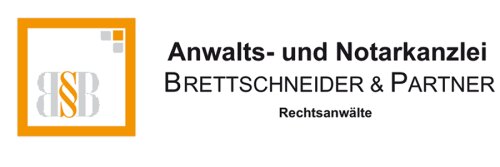Best Drugs & Medical Devices Lawyers in Germany
Share your needs with us, get contacted by law firms.
Free. Takes 2 min.
Or refine your search by selecting a city:
List of the best lawyers in Germany
About Drugs & Medical Devices Law in Germany
The regulation of drugs and medical devices in Germany is primarily governed by stringent national laws and European Union regulations. The key legislative frameworks include the German Medicines Act (Arzneimittelgesetz - AMG) and the Medical Devices Act (Medizinproduktegesetz - MPG), both designed to ensure the safety, efficacy, and quality of medical products in the market. Germany's regulatory environment is robust, ensuring protection for patients and consumers through strict compliance with manufacturing, marketing, and post-marketing surveillance requirements.
Why You May Need a Lawyer
Individuals and companies may require legal assistance in the field of drugs and medical devices for various reasons. Common scenarios include navigating the complex regulatory approval process for new drugs or medical devices, responding to compliance issues or regulatory inspections, addressing disputes relating to patents or intellectual property rights, and handling product liability claims or recalls. Additionally, professional guidance is essential when dealing with cross-border regulations and partnerships within the European Union context.
Local Laws Overview
German regulations on drugs and medical devices are closely aligned with EU directives, ensuring harmonized standards across member states. Key aspects include:
- Authorization and Certification: Before being marketed, medicinal products must be authorized, and medical devices must undergo conformity assessment.
- Pharmacovigilance: Post-market surveillance obligations are stringent, requiring continuous monitoring of product safety and performance.
- Advertising Restrictions: Strict laws govern the advertisement of drugs and medical devices to prevent misleading information and ensure ethical promotion.
- Data Protection: Compliance with the EU General Data Protection Regulation (GDPR) is crucial for handling personal data during clinical trials and other research.
- Intellectual Property: The protection and enforcement of patents, trademarks, and other IP rights are essential for innovation and competitiveness.
Frequently Asked Questions
What is the process for getting a new drug approved in Germany?
Drug approval in Germany typically involves submission to the Federal Institute for Drugs and Medical Devices (BfArM) or the European Medicines Agency (EMA) for centralized procedures. The application must demonstrate safety, efficacy, and quality through preclinical and clinical studies.
Are homeopathic products regulated in Germany?
Yes, homeopathic products are regulated under the German Medicines Act (AMG). They must be registered with the authorities, and their manufacturing must comply with specified quality standards.
What are my rights if I've been harmed by a medical device?
If a medical device causes harm, you may have the right to compensation under product liability laws. It is advisable to consult a lawyer to discuss your specific case and potential legal remedies.
How can companies ensure compliance with advertising regulations?
Companies should ensure that drug or device advertising is truthful, well-substantiated, and in compliance with both German law and the European Medicines Agency guidelines. Consulting with legal experts in advertising law is beneficial.
Can foreign medical devices be marketed directly in Germany?
Yes, foreign medical devices can be marketed in Germany, but they must meet the same conformity assessment and approval requirements as those manufactured locally, typically involving CE marking.
What should I do if my drug is subject to a regulatory inspection?
Preparation for regulatory inspections involves understanding the compliance requirements, maintaining clear records, and possibly consulting with regulatory affairs professionals or legal advisors to ensure readiness.
Are there specific requirements for clinical trials in Germany?
Conducting clinical trials in Germany requires adherence to Good Clinical Practice (GCP) guidelines, ethical committee approvals, and compliance with the German Drug Law (AMG) and Medical Devices Act (MPG).
What role does the BfArM play in drug regulation?
The BfArM is responsible for authorizing and supervising medicinal products, performing risk assessments, and ensuring compliance with regulatory standards to safeguard public health in Germany.
How does Germany address shortages of essential medicines?
Germany addresses drug shortages through regulatory measures such as mandatory stockpiling by manufacturers, substitution protocols, and enhanced monitoring of supply chains.
Is telemedicine considered a medical device in Germany?
Telemedicine platforms are not inherently classified as medical devices. However, specific software components providing diagnostic or therapeutic functions could be considered medical devices and thus require compliance with relevant regulations.
Additional Resources
The following resources can provide further assistance and information:
- Federal Institute for Drugs and Medical Devices (BfArM)
- Paul-Ehrlich-Institut (PEI) for vaccines and biomedicine
- German Ethics Council for clinical trial ethics
- European Medicines Agency (EMA)
- Association of Research-Based Pharmaceutical Companies (vfa)
Next Steps
If you need legal assistance in drugs and medical devices, consider reaching out to a specialized legal firm or consultant with expertise in this field. It can be beneficial to seek advice early, particularly if you are facing regulatory challenges or planning to enter the German market. Additionally, attending industry seminars and workshops can provide valuable insights into navigating the legal landscape.
Lawzana helps you find the best lawyers and law firms in Germany through a curated and pre-screened list of qualified legal professionals. Our platform offers rankings and detailed profiles of attorneys and law firms, allowing you to compare based on practice areas, including Drugs & Medical Devices, experience, and client feedback.
Each profile includes a description of the firm's areas of practice, client reviews, team members and partners, year of establishment, spoken languages, office locations, contact information, social media presence, and any published articles or resources. Most firms on our platform speak English and are experienced in both local and international legal matters.
Get a quote from top-rated law firms in Germany — quickly, securely, and without unnecessary hassle.
Disclaimer:
The information provided on this page is for general informational purposes only and does not constitute legal advice. While we strive to ensure the accuracy and relevance of the content, legal information may change over time, and interpretations of the law can vary. You should always consult with a qualified legal professional for advice specific to your situation.
We disclaim all liability for actions taken or not taken based on the content of this page. If you believe any information is incorrect or outdated, please contact us, and we will review and update it where appropriate.
Browse drugs & medical devices law firms by city in Germany
Refine your search by selecting a city.















